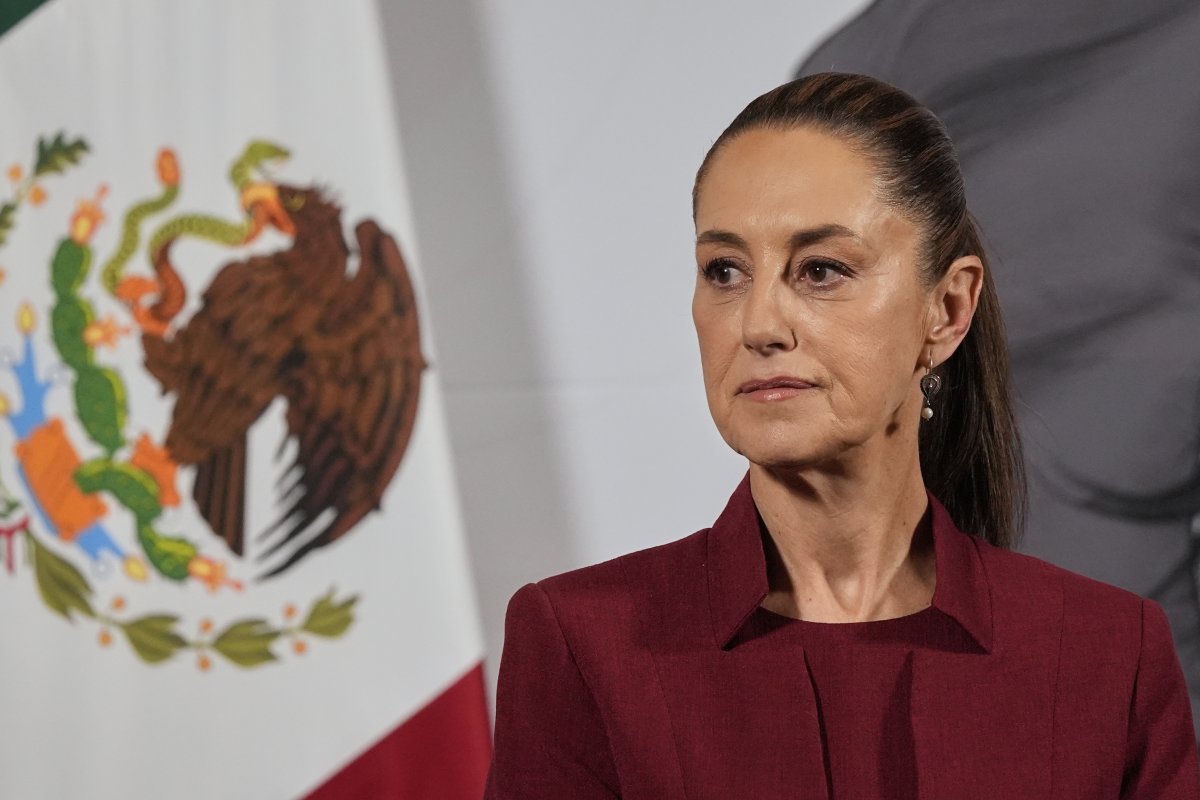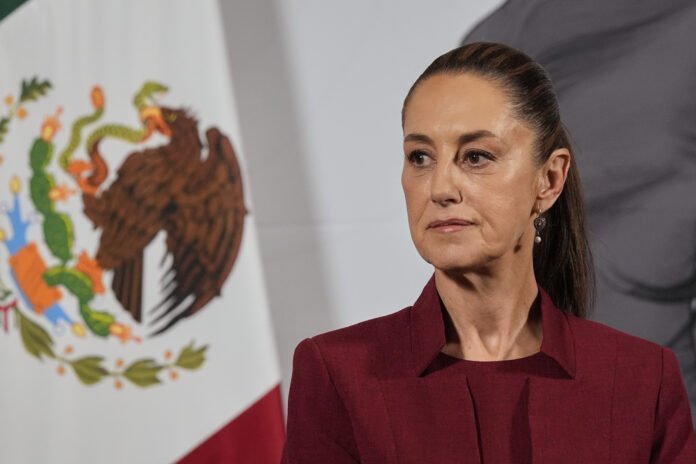Mexican President Claudia Sheinbaum said, “we’re no one’s piñata,” Thursday, blasting the Trump administration’s decision to sanction three Mexican financial institutions over money laundering allegations.
“We aren’t going to cover for anyone…but they have to demonstrate that there was actually money laundering—not with words, but with strong evidence,” she said during her morning briefing.
“We’re no one’s piñata,” she added. “Mexico must be respected.”
Why It Matters
The dispute comes at a time of heightened scrutiny over the role of international financial networks in fueling the U.S. fentanyl crisis. Chinese companies are widely acknowledged as the main source of precursor chemicals for fentanyl production. Mexico, long grappling with powerful drug cartels operating with significant impunity, has become a key transit and production hub.
U.S. officials argue that financial institutions in Mexico are being exploited—knowingly or not—by both cartels and Chinese firms seeking to circumvent American regulators. Treasury Secretary Scott Bessent wrote on X that “Cartels have exploited Mexico-based financial institutions to move money, enabling the vicious fentanyl supply chain.”
What To Know
Sheinbaum, who became Mexico’s first female president and has successfully navigated the complex relationship between her government and the Trump administration, defended the nature of Mexico’s financial ties to China, arguing that they reflect a growing trade relationship, not criminal complicity.
“Their own investigation simply showed that institutions had strong relationships with Chinese clients and banks,” she said. “That’s not evidence of wrongdoing—it’s trade.”

Associated Press
A day after the U.S. Treasury announced sanctions against CIBanco, Intercam Banco, and brokerage Vector Casa de Bolsa, Mexico’s banking regulator moved to temporarily take over the administration of CIBanco and Intercam. Officials said the intervention was necessary to protect depositors and maintain stability.
The sanctions, which cut access to U.S. dollar transactions and financial networks, could carry broader economic consequences given Mexico’s close integration with the U.S. economy. Still, Mexican officials and the country’s banking association said the financial system remains stable, and there is no risk of contagion.
Sheinbaum called the accusations politically motivated and unsupported. “We aren’t going to cover for anyone,” she said. “But they need to prove that money laundering actually happened—not just with words, but with strong evidence.”
U.S. Treasury: Sanctioned Banks Enabled Cartel Money Flows
The U.S. Treasury described the firms as key financial conduits for drug cartels operating across North America. The move—its first under the newly enacted FEND Off Fentanyl Act—grants expanded powers to target opioid-related money laundering.
“Financial facilitators like CIBanco, Intercam, and Vector are enabling the poisoning of countless Americans by moving money on behalf of cartels,” Treasury Secretary Scott Bessent said. “They are vital cogs in the fentanyl supply chain.”
According to the Treasury, the banks moved tens of millions of dollars tied to purchases of fentanyl precursors from China and laundered cartel proceeds through accounts that bypassed standard anti-money laundering controls.

Francisco Vega/Getty
Among the findings cited by the Financial Crimes Enforcement Network (FinCEN) were accounts tied to the Gulf Cartel, Sinaloa Cartel, and Jalisco New Generation Cartel (CJNG)—some allegedly created with the knowledge of bank employees.
Between 2021 and 2024, Treasury investigators say CIBanco processed over $2.1 million in transfers from Mexican shell companies to China-based chemical suppliers. Vector was cited for facilitating over $1 million in payments tied to chemical shipments, along with laundering $2 million through U.S.-to-Mexico transfers on behalf of cartel operatives.
“These payments illustrate significant failings in Vector’s AML/CFT controls,” FinCEN wrote in its order.
The sanctions prohibit U.S. institutions from conducting transactions involving the three firms or their affiliated accounts, including those in virtual currencies. The restrictions will take effect 21 days after publication in the Federal Register.
What People Are Saying
Treasury Secretary Scott Bessent, on X, formerly Twitter: “Cartels have exploited Mexico-based financial institutions to move money, enabling the vicious fentanyl supply chain that has poisoned countless Americans.”
CIBanco executive Manuel Somoza told Mexican media: “Rumors are clearly damaging, whether they’re true or not. So, what we want is for [American authorities] to come and investigate.”
What Happens Next
The sanctions are set to take effect in 21 days. All three institutions deny wrongdoing. CIBanco, with approximately $7 billion in assets, said it would cooperate with U.S. and Mexican regulators and emphasized that client deposits are protected under domestic law. Vector, managing nearly $11 billion, said it is “fully prepared to provide the information needed to clarify these allegations.” Intercam, with $4 billion in assets, has not commented publicly.
Update 6/26/25, 3:42 p.m. ET: This article was updated with additional information.
Update 6/26/25, 5:41 p.m. ET: This article was updated with additional information and remarks.


























